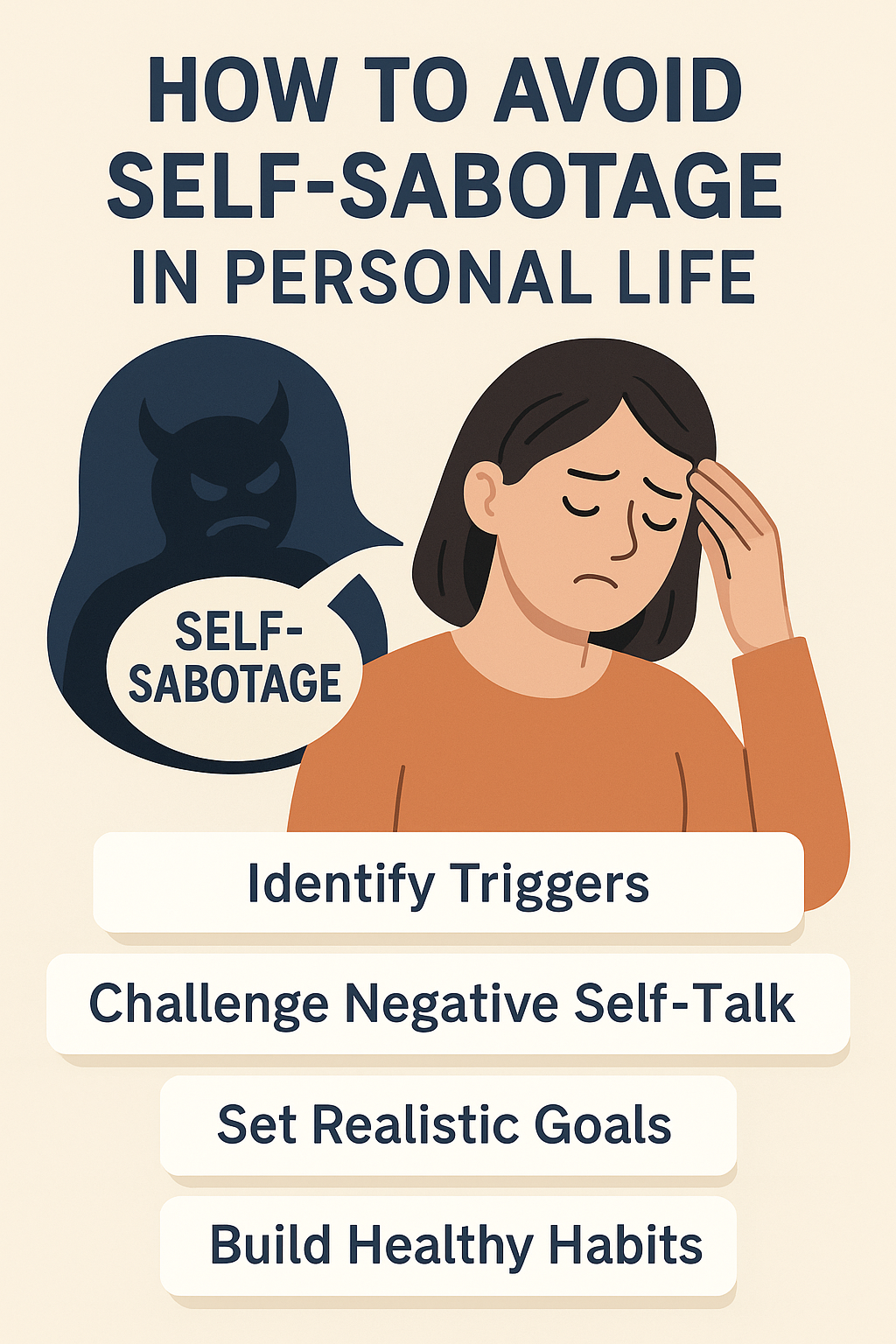Sometimes the biggest obstacle between you and your dreams is not external—it’s internal. Self-sabotage happens when your thoughts, habits, or behaviors unconsciously block your progress. The good news? Once you recognize these patterns, you can break free and move forward with clarity and confidence.
This article will help you understand self-sabotage and give you practical strategies to overcome it.
What Is Self-Sabotage?
Self-sabotage is when you consciously or unconsciously act against your own best interests. It often shows up as procrastination, negative self-talk, perfectionism, or choosing short-term comfort over long-term growth.
Common examples include:
- Putting off important tasks until the last minute.
- Doubting your abilities, even when you’ve succeeded before.
- Avoiding opportunities out of fear of failure.
- Creating unnecessary conflicts in relationships.
Why Do We Self-Sabotage?
Self-sabotage is usually rooted in deeper issues, such as:
- Fear of failure: Believing you can’t succeed, so you don’t try.
- Fear of success: Worrying that success will bring pressure, judgment, or change.
- Low self-worth: Feeling unworthy of love, happiness, or achievement.
- Comfort zone attachment: Staying in familiar patterns, even if they hurt you.
How to Recognize Self-Sabotage
The first step to overcoming self-sabotage is awareness. Watch for these signs:
- Constant procrastination.
- Overthinking simple decisions.
- Making excuses instead of taking responsibility.
- Quitting just before making progress.
- Saying “I can’t” more often than “I’ll try.”
Strategies to Overcome Self-Sabotage
1. Identify Triggers
Notice when you tend to self-sabotage. Is it when you’re stressed? Tired? Facing something new? Awareness helps you anticipate and redirect the behavior.
2. Challenge Negative Self-Talk
Replace destructive thoughts with empowering ones:
- Instead of “I’ll fail,” say, “I’m learning and improving.”
- Instead of “I’m not good enough,” say, “I deserve happiness and success.”
3. Set Realistic Goals
Unrealistic expectations set you up for disappointment. Break goals into small, achievable steps to build confidence.
4. Focus on Progress, Not Perfection
Perfectionism fuels self-sabotage. Accept that mistakes are part of growth. Done is better than perfect.
5. Build Healthy Habits
Consistency in small habits (exercise, journaling, planning your day) reduces the chance of slipping into old patterns.
6. Develop Self-Compassion
Be kind to yourself. Acknowledge your effort instead of criticizing mistakes. Treat yourself as you would treat a friend.
7. Seek Support
Sometimes self-sabotage runs deep. Talking with a trusted friend, mentor, or therapist can help you gain perspective and strategies.
How Avoiding Self-Sabotage Transforms Your Life
When you stop sabotaging yourself:
- Your confidence grows.
- Your relationships improve.
- Your goals feel more achievable.
- You begin to live more authentically.
Take Back Control
Self-sabotage is not a permanent trait—it’s a pattern you can break. By identifying your triggers, practicing self-compassion, and building new habits, you can step out of your own way and finally move toward the life you want.
Remember: You deserve your dreams. Don’t let self-sabotage stand between you and your best self.
